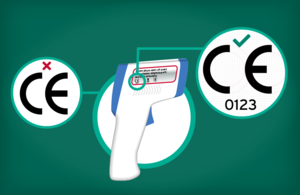Thames staycationers urged to become #WaterWarriors this summer
- Record numbers expected to holiday at home this summer
- Visitors urged to ‘know before you go’ to the country’s blue spaces
Staycationers are being urged to become #WaterWarriors and make the right choices when visiting beaches, rivers and lakes this summer in a new Environment Agency campaign launched today.
Record numbers are expected to holiday at home this summer due to ongoing coronavirus uncertainties, with an estimated 30 million people expected to visit our beaches (source: RNLI), and still more visiting rivers and lakes across the country.
Staycationers are being encouraged to consider how their actions, whether at home or on holiday, can affect water quality and to remember some simple actions they can take to protect blue spaces for everyone:
- only flush the 3Ps – pee, poo and paper
- never pour fats and oils down the sink
- never flush wet wipes and sanitary products down the loo
- always take your rubbish away from the beach
- always bag and bin your dog’s poo
- never pour waste liquids or throw litter down surface water drains
Visitors to bathing waters are being encouraged to ‘know before you go’ by checking the Environment Agency’s Swimfo website, which provides instant, easy access to information on over 400 bathing waters in England, including the latest water quality classification – and, for some bathing waters, when warnings are issued due to the temporary effects on water quality after a rainy day or high tides.
Having this information at the fingertips ensures people have the most up-to-date information before they take the plunge. Joint advice with Public Health England is also available on open water swimming – that’s swimming anywhere that isn’t a public pool – at Swim healthy.
Julia Simpson, Deputy Director, Environment Agency, Thames area said:
It’s great to take time out to enjoy our environment around us. Whether you’re spending time at home, visiting the countryside or travelling to the coast we’re asking people to be aware of their actions.
By taking some simple steps we can all help protect the quality of water in our rivers, lakes and bathing waters – our blue spaces – for everyone to continue to enjoy this summer.
David Dangerfield, Director for Water, Land and Biodiversity for the Environment Agency, said:
With more people than ever taking a staycation and enjoying time in and around England’s blue spaces, be it beaches, rivers or lakes this summer, it’s vital to know how we can all protect them.
That’s why this summer we’re calling on people to check the Swimfo site for bathing water quality and follow #WaterWarriors on our social media channels.
Although the standard of bathing water quality in England is very high, it is always a good idea to check the water quality and whether any pollution warnings are in force. With the potential for some beaches being very crowded this summer, it’s also an opportunity to search out some of the quieter spots. We want people to use the water safely, be aware of the risks and seek the right advice before taking the plunge.
As the environmental regulator, the Environment Agency plays a key role in protecting and enhancing blue spaces, but it’s important to remember that individual actions really do count. Small actions in the home or at holiday accommodation can have a damaging impact on water quality. Wet wipes, kitchen towels, sanitary products, fats, oil and grease don’t belong down the drain, but are still found in huge quantities, leading to build-up, blockages and poor water quality.
